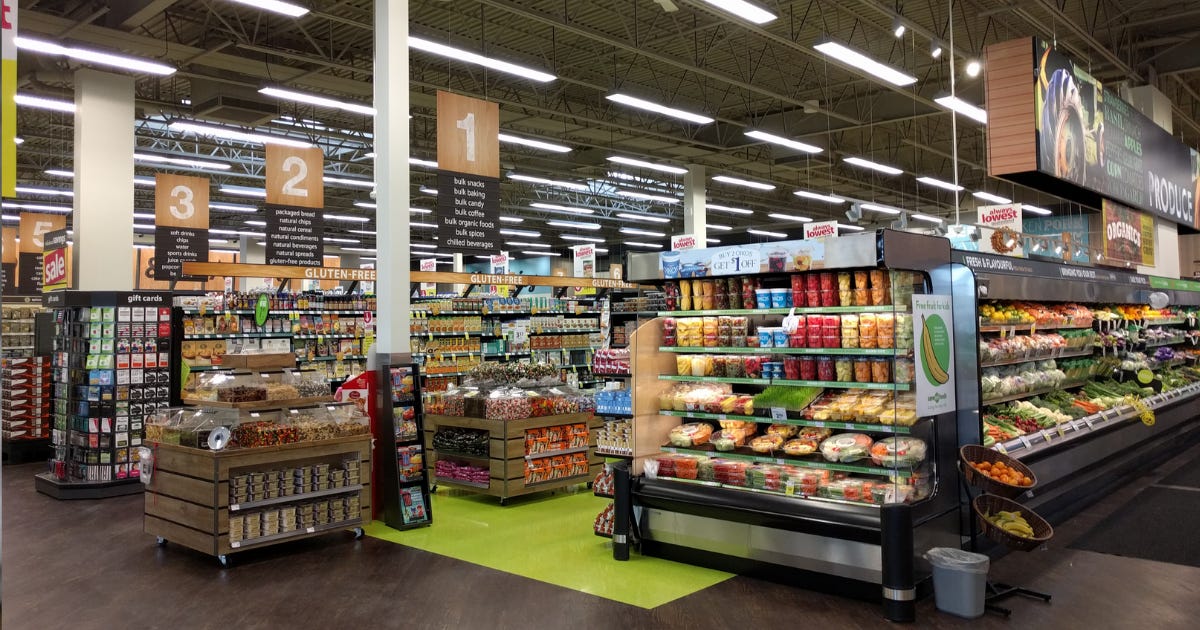1 in 5 Canadians forced to skip out on bills to afford groceries: survey
A growing swath of the population is being forced to choose between paying their bills and putting food on the table, with one in five Canadians now saying they’ve had to forego paying their bills.
A growing swath of the population is being forced to choose between paying their bills and putting food on the table, with one in five Canadians now saying they’ve had to forego paying their bills to buy groceries.
According to a new survey by Nanos Research, 18.1 per cent of those aged 18 to 34 said they sometimes or often missed a bill in order to feed themselves.
Similar responses were reported by those aged 35 to 54 at 17.9 per cent. That figure drops to 4.2 per cent for respondents 55 and older.
“It’s quite striking. I think in any other world, this would be considered an epidemic. What’s clear is that there’s a significant proportion of Canadians that are facing those really tough choices,” chief data scientist Nik Nanos told CTV News, who commissioned the poll.
“Those over 55 years of age, they’re just more likely to be in a secure and solid financial position,” he says. “If you’re a young person or if you’re a middle-aged person with a family, you’re probably thinking about, is rent or housing going up? And how secure one’s job might be.”
The survey also found notable differences depending on where respondents lived across the country.
For example, in Atlantic Canada, 24.2 per cent of respondents said they skipped a bill sometimes or often, the highest of any region, although it was also the smallest sample size.
Ontario and Quebec experienced this problem the least, at 8.1 per cent each.
The Prairies and British Columbia were middle of the pack, at 16.5 per cent and 10.5 per cent, respectively.
Men and women reported similar experiences, missing bills to get food at a nearly identical rate.
The problem of food insecurity has steadily become more pervasive in recent years, with one-quarter of households now struggling to afford food. This includes going entire days without food or worrying about running out of supplies at home.
According to a report from Food Banks Canada earlier this month, there has been a 40 per cent increase in poverty over the last two years.
The charity released its 2025 Poverty Report Card, giving Canada an overall failing grade of “D.”
The grade reflects the federal government’s poverty reduction efforts.
“A clear picture that emerges from the data is the nationwide inadequacy of government support, which has worsened severely across the country,” reads the report.
“In 2023, just under half (45.9 per cent) of people who were receiving government support reported that it was not enough to meet their needs. In 2024, that figure rose to 50.8 per cent. It now stands at 65 per cent — or nearly 2 in 3 people who receive support”.
The report, based on data from the 2023 Canadian Income Survey and Statistics Canada, noted that Food Banks Canada made 27 recommendations last year. Three from previous reports were fully implemented.
However, the charity said “very little progress was made in the context of the remaining 24 to address critical priorities and improve income security and close infrastructure gaps in northern communities.”
The report called for the Carney government to adopt a national commitment to halve food insecurity by the end of the decade by “considering the introduction of an essentials and groceries benefit in addition to other policy changes to help improve access to quality and affordable food.”
The report also recommended a food affordability impact assessment for all new tariff measures and trade disputes, especially those affecting basic household foods, to mitigate inflation.





Question : Instead of government providing more support , how about getting their spending under control , reducing taxes , removing the barriers for job creation, stopping immigration until our country has time to recover from the mass immigration & opening our doors to develop our resources ? Providing more programs brings to mind an old saying "Give one a fish you feed someone for a day but if you teach them to fish you will feed them for a lifetime." Providing more programs to me is giving one a fish . While helpful for a day does not help these people long term .
It's housing. This is downstream. Build housing, cut regulations, stop legal immigration. Or else you'll get Mandami. People will vote for affordability, even if it's a Muslim liar.